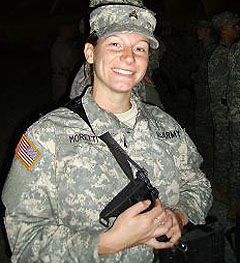Leaders Eat Last: Why Some Teams Pull Together and Others Don’t – May 23, 2017 by Simon Sinek
In his work with organizations around the world, Simon Sinek noticed that some teams trust each other so deeply that they would literally put their lives on the line for each other. Other teams, no matter what incentives are offered, are doomed to infighting, fragmentation and failure. Why? The answer became clear during a conversation with a Marine Corps general. “Officers eat last,” he said. Sinek watched as the most junior Marines ate first while the most senior Marines took their place at the back of the line. What’s symbolic in the chow hall is deadly serious on the battlefield: Great leaders sacrifice their own comfort–even their own survival–for the good of those in their care.
Loonshots: How to Nurture the Crazy Ideas That Win Wars, Cure Diseases, and Transform Industries
– March 19, 2019 by Safi Bahcall
Loonshots reveals a surprising new way of thinking about the mysteries of group behavior that challenges everything we thought we knew about nurturing radical breakthroughs. Bahcall, a physicist and entrepreneur, shows why teams, companies, or any group with a mission will suddenly change from embracing new ideas to rejecting them, just as flowing water will suddenly change into brittle ice. Mountains of print have been written about culture. Loonshots identifies the small shifts in structure that control this transition, the same way that temperature controls the change from water to ice. Using examples that range from the spread of fires in forests to the hunt for terrorists online, and stories of thieves and geniuses and kings, Bahcall shows how a new kind of science can help us become the initiators, rather than the victims, of innovative surprise. Over the past decade, researchers have been applying the tools and techniques of this new science — the science of phase transitions — to understand how birds flock, fish swim, brains work, people vote, diseases erupt, and ecosystems collapse. Loonshots is the first to apply this science to the spread of breakthrough ideas, and provides practical lessons creatives, entrepreneurs, and visionaries can use to change our world.
It Worked for Me: In Life and Leadership – May 22, 2012 by Colin Powell
It Worked for Me is a collection of lessons and personal anecdotes that shaped four star-general and former Secretary of State Colin Powell’s legendary career in public service. At its heart are Powell’s “Thirteen Rules,”—notes he accumulated on his desk that served as the basis for the leadership presentations he delivered throughout the world.
Powell’s short-but-sweet rules such as “Get mad, then get over it” and “Share credit,” are illuminated by revealing personal stories that introduce and expand on his principles for effective leadership: conviction, hard work, and above all, respect for others. In work and life, Powell writes, “It is the human gesture that counts.”
The Inevitable: Understanding the 12 Technological Forces That Will Shape Our Future – June 6, 2017 by Kevin Kelly
Much of what will happen in the next thirty years is inevitable, driven by technological trends that are already in motion. In this fascinating, provocative new book, Kevin Kelly provides an optimistic road map for the future, showing how the coming changes in our lives—from virtual reality in the home to an on-demand economy to artificial intelligence embedded in everything we manufacture—can be understood as the result of a few long-term, accelerating forces. Kelly both describes these deep trends—interacting, cognifying, flowing, screening, accessing, sharing, filtering, remixing, tracking, and questioning—and demonstrates how they overlap and are codependent on one another. These larger forces will completely revolutionize the way we buy, work, learn, and communicate with each other. By understanding and embracing them, says Kelly, it will be easier for us to remain on top of the coming wave of changes and to arrange our day-to-day relationships with technology in ways that bring forth maximum benefits. Kelly’s bright, hopeful book will be indispensable to anyone who seeks guidance on where their business, industry, or life is heading—what to invent, where to work, in what to invest, how to better reach customers, and what to begin to put into place—as this new world emerges.
The Tipping Point by Malcom Gladwell
Malcolm Gladwell’s “The Tipping Point” is a thought-provoking exploration of the fascinating phenomena that drive social epidemics and transform small changes into significant shifts. With a keen eye for storytelling and a knack for dissecting complex concepts, Gladwell delves deep into the dynamics behind tipping points, offering readers a compelling and insightful journey.
Gladwell’s writing is both accessible and captivating, allowing readers to effortlessly absorb complex sociological theories. He explores a wide range of topics, from the outbreak of teenage smoking to the sudden resurgence of Hush Puppies shoes, unraveling the underlying principles that drive these phenomena. His ability to draw connections between seemingly disparate events and trends is nothing short of brilliant.
“The Tipping Point” is a masterclass in the art of dissecting social phenomena and understanding the forces that shape our world. Malcolm Gladwell’s ability to make complex ideas accessible and his talent for weaving together intriguing narratives make this book a must-read for anyone interested in sociology, psychology, marketing, or simply in gaining a deeper understanding of how our world changes. “The Tipping Point” reminds us that sometimes, all it takes is a small push to set off a chain reaction that transforms the world around us.
Execution: The Discipline of Getting Things Done – June 15, 2002 by Larry Bossidy, Ram Charan, and Charles Burck
“Execution: The Discipline of Getting Things Done” is a compelling guide that delves deep into the heart of successful business execution. In a world filled with management theories and strategies, this book stands out as a practical manual for transforming ideas into results.
The authors argue that execution is the ultimate discipline and the key to success in today’s fiercely competitive corporate landscape. Drawing upon their extensive experience, Bossidy and Charan provide readers with a structured framework for executing strategies effectively. The book offers valuable insights into aligning people, strategy, and operations, ensuring that everyone in the organization understands their roles and responsibilities in achieving the company’s objectives.
“Execution: The Discipline of Getting Things Done” is a must-read for business leaders and managers looking to bridge the gap between strategy and results. The book provides a solid framework for creating a culture of accountability and achievement within an organization. While some elements may feel outdated, the core principles remain a valuable guide for anyone seeking to navigate the complexities of execution in today’s dynamic business environment. This book serves as a reminder that execution is not just a tactic but a discipline that requires continuous attention, commitment, and adaptation.
The Culture Code: The Secrets of Highly Successful Groups – January 30, 2018 by Daniel Coyle
In The Culture Code, Daniel Coyle goes inside some of the world’s most successful organizations—including the U.S. Navy’s SEAL Team Six, IDEO, and the San Antonio Spurs—and reveals what makes them tick. He demystifies the culture-building process by identifying three key skills that generate cohesion and cooperation, and explains how diverse groups learn to function with a single mind. Drawing on examples that range from Internet retailer Zappos to the comedy troupe Upright Citizens Brigade to a daring gang of jewel thieves, Coyle offers specific strategies that trigger learning, spark collaboration, build trust, and drive positive change. Coyle unearths helpful stories of failure that illustrate what not to do, troubleshoots common pitfalls, and shares advice about reforming a toxic culture. Combining leading-edge science, on-the-ground insights from world-class leaders, and practical ideas for action, The Culture Code offers a roadmap for creating an environment where innovation flourishes, problems get solved, and expectations are exceeded.
In “Blink: The Power of Thinking Without Thinking,” Malcolm Gladwell takes readers on a captivating journey through the realm of split-second decision-making and intuition. With his signature storytelling prowess and keen analytical mind, Gladwell delves into the depths of the unconscious mind, shedding light on how snap judgments can sometimes be surprisingly accurate and, at other times, lead us astray.
At the core of “Blink” is the concept of “thin-slicing,” the ability to make rapid decisions based on minimal information. Gladwell explores how our brains are wired to process information quickly, drawing on both our experiences and cultural conditioning to form immediate impressions. Through a series of fascinating anecdotes and real-world examples, he illustrates the incredible power of these seemingly instinctual decisions.
“Blink” is a thought-provoking exploration of the hidden forces that shape our quick decisions. Malcolm Gladwell’s ability to blend real-life examples with psychological insights makes the book an engaging read. While it may not provide all the answers to the complexities of human judgment, it offers a fascinating perspective on the power of intuition and the importance of understanding the role it plays in our lives. “Blink” invites us to trust our instincts while also reminding us to approach snap judgments with a critical eye.
Deep Work: Rules for Focused Success in a Distracted World – January 5, 2016 by Cal Newport
Deep work is the ability to focus without distraction on a cognitively demanding task. It’s a skill that allows you to quickly master complicated information and produce better results in less time. Deep work will make you better at what you do and provide the sense of true fulfillment that comes from craftsmanship. In short, deep work is like a super power in our increasingly competitive twenty-first century economy. And yet, most people have lost the ability to go deep-spending their days instead in a frantic blur of e-mail and social media, not even realizing there’s a better way.
In DEEP WORK, author and professor Cal Newport flips the narrative on impact in a connected age. Instead of arguing distraction is bad, he instead celebrates the power of its opposite. Dividing this book into two parts, he first makes the case that in almost any profession, cultivating a deep work ethic will produce massive benefits. He then presents a rigorous training regimen, presented as a series of four “rules,” for transforming your mind and habits to support this skill.
In Blindspot, the authors reveal hidden biases based on their experience with the Implicit Association Test, a method that has revolutionized the way scientists learn about the human mind and that gives us a glimpse into what lies within the metaphoric blindspot. The title’s “good people” are those of us who strive to align our behavior with our intentions. The aim of Blindspot is to explain the science in plain enough language to help well-intentioned people achieve that alignment. By gaining awareness, we can adapt beliefs and behavior and “outsmart the machine” in our heads so we can be fairer to those around us. Venturing into this book is an invitation to understand our own minds. Brilliant, authoritative, and utterly accessible, Blindspot is a book that will challenge and change readers for years to come.

Thinking, Fast and Slow – April 2, 2013 by Daniel Kahneman
Engaging the reader in a lively conversation about how we think, Kahneman reveals where we can and cannot trust our intuitions and how we can tap into the benefits of slow thinking. He offers practical and enlightening insights into how choices are made in both our business and our personal lives―and how we can use different techniques to guard against the mental glitches that often get us into trouble. Topping bestseller lists for almost ten years, Thinking, Fast and Slow is a contemporary classic, an essential book that has changed the lives of millions of readers.
I Love It Here – April 13, 2021 by Clint Pulver
Emmy Award-winning speaker Clint Pulver―aka the Undercover Millennial―shares insights gleaned from thousands of undercover interviews with employees across the country, revealing the best methods for identifying talent, building a sense of ownership, and developing a successful workplace culture that employees will love. You’ll also learn the number one driver of employee turnover (spoiler: it has everything to do with you!), what you can do to stop an exodus, and how to build a team that really works. Soon, you’ll be recognizing possibilities where others see problems, and capturing the power of small moments to create a meaningful legacy. Your company can be a place where people don’t just survive, but thrive. I Love It Here shows you how.
Tribe: On Homecoming and Belonging – May 24, 2016 by Sebastian Junger
We have a strong instinct to belong to small groups defined by clear purpose and understanding–“tribes.” This tribal connection has been largely lost in modern society, but regaining it may be the key to our psychological survival. Combining history, psychology, and anthropology, Tribe explores what we can learn from tribal societies about loyalty, belonging, and the eternal human quest for meaning. It explains the irony that-for many veterans as well as civilians-war feels better than peace, adversity can turn out to be a blessing, and disasters are sometimes remembered more fondly than weddings or tropical vacations. Tribe explains why we are stronger when we come together, and how that can be achieved even in today’s divided world.

https://amzn.to/3EGnsfpThe Art of Thinking Clearly – May 6, 2014 by Rolf Dobelli
Rolf Dobelli’s “The Art of Thinking Clearly” is a concise and accessible guide to the many cognitive biases and logical fallacies that often lead us astray in our decision-making processes. Drawing from the fields of psychology, economics, and behavioral science, Dobelli presents readers with a toolbox for recognizing and overcoming the thinking errors that can hinder personal and professional success.
The real-world examples and anecdotes sprinkled throughout the book are both entertaining and relatable. Dobelli illustrates each bias with stories and scenarios, often drawn from history, business, and everyday life. These anecdotes drive home the practical implications of the biases discussed, making it easy for readers to recognize similar patterns in their own decision-making.
In conclusion, “The Art of Thinking Clearly” is a valuable resource for anyone interested in improving their decision-making skills. Rolf Dobelli’s exploration of cognitive biases is both enlightening and accessible, making it a practical guide for everyday life. While the book’s brevity may leave some readers yearning for deeper insights, it serves as an excellent starting point for those looking to navigate the intricate landscape of human thought more effectively. By reading this book, you’ll equip yourself with the tools to think more clearly and make better choices in an increasingly complex world.
The Mission, the Men, and Me: Lessons from a Former Delta Force Commander – September 7, 2010
by Pete Blaber
As a commander of Delta Force-the most elite counter—terrorist organization in the world—Pete Blaber took part in some of the most dangerous, controversial, and significant military and political events of our time. Now he takes his intimate knowledge of warfare—and the heart, mind, and spirit it takes to win—and moves his focus from the combat zone to civilian life. In this book, you will learn the same lessons he learned, while experiencing what the life of a Delta Force Operator is like—from the extreme physical and psychological training to the darkest of shadow ops all around the world. From each mission, Pete Blaber has taken a life lesson back with him. You will learn these enlightening lessons as you gain insights into never-before-revealed missions executed around the globe. And when the smoke clears, you will emerge wiser, more capable, and better prepared to succeed in life than you ever thought possible.
Distributed Teams: The Art and Practice of Working Together. – January 20, 2021 by John O’Duinn
If you are working in, joining, or starting a distributed team, this book is for you. This easy-to-read book has short chapters with practical takeaways on topics like: Why distributed teams are good for business, diversity, employee retention, society and the environment. How to run efficient video calls and meetings while dealing with lots of email and group chat. How to handle complex interpersonal topics such as hiring, firing, one-on-ones, reviews, trust and group culture. Drawn from 26+ years working in distributed organizations, this book gathers what did — and did not — work from the author’s hard-learned lessons, as well as learnings from company founders, hedge fund managers, software developers, data scientists, accountants, book publishers, economists, political organizers, recruiters, military personnel, executive assistants, therapists and medical technicians.
Disclosure of Material Connection: Some of the links contained on this site are “affiliate links.” This means if you click on the link and purchase the item, we will receive an affiliate commission. This revenue is used to offset costs associated with maintaining this site. We only recommend products or services I use personally and believe will add value to my readers. We are disclosing this in accordance with the Federal Trade Commission’s 16 CFR, Part 255: “Guides Concerning the Use of Endorsements and Testimonials in Advertising.”





















